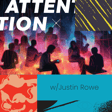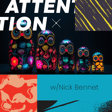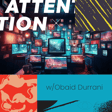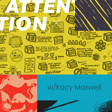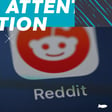
Audience Growth Via Content Creation Automation w/Stephen G Pope
In this episode of Audience Growth School, host Dan Sanchez interviews Stephen Pope, a content creation automation expert that shares his insights on building an engaged audience and optimizing content creation processes.
Timestamps:
[00:01:38] LinkedIn is more of a networking platform, not a creator platform. TikTok and YouTube are where the user has seen the most success in growing an audience. The user has 45,000 followers on TikTok and 2,5100 subscribers on YouTube. They have also built a growing community of 700 people.
[00:03:51] Content automation for efficient content creation.
[00:08:04] Automating content creation can dilute uniqueness.
[00:10:22] AI writes blog posts from podcast episodes.
[00:15:13] Interact, communicate, and grow in online community.
[00:18:56] Building cost-effective teams for content creation.
[00:21:19] Changing tools and workflows can be challenging.
[00:26:03] Starting over, selling company pushes personal growth, storytelling.
[00:29:46] People fear cutting off others in pursuit of their goals; wrestling with uncertainty can lead to unexpected opportunities; specializing in a niche is crucial for success.
[00:35:07] Improving content distribution, maintaining quality, impactful community.
[00:38:49] Seeking more views, growing community, trusted communities.
[00:39:55] Focusing on community growth and social media.






